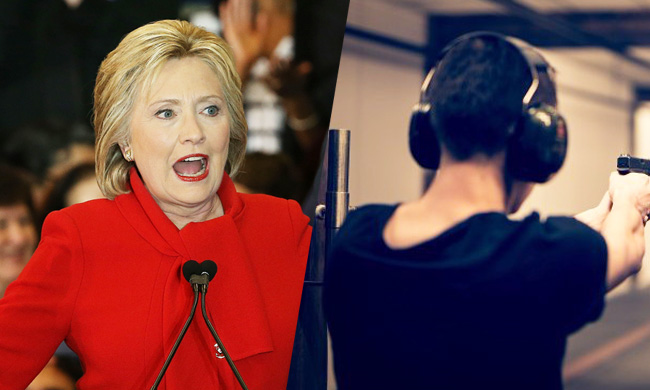
On Wednesday, Michael Fifer, CEO of the gun manufacturer Sturm Ruger, accused Hillary Clinton of “actively campaigning against the lawful commerce in arms.”
Asked whether Clinton’s presidential campaign had anything to do with the rising demand for firearms, Fifer explained that his company isn’t equipped to survey the impact of politician’s statements on gun purchases. However, he called this “a unique time in our history because for the first time ever we have a nominee of a major political party, one with a very real likelihood of winning the presidency, overtly stating that the Supreme Court got it wrong in the Heller case and actively campaigning against the lawful commerce in arms.”
In District of Columbia v. Heller, the Supreme Court ruled that D.C.’s handgun ban, along with law that required gun owners to keep their guns disassembled or with a trigger lock while stored in their homes, violated the Second Amendment.
Clinton raised conservative eyebrows over the weekend when she told Chris Wallace on Fox News Sunday that the Second Amendment, “like every other of our rights, our First Amendment rights, every right that we have, is open to and even subject to reasonable regulations.” In a statement to Bloomberg in May, her campaign clarified: “Clinton believes Heller was wrongly decided” because cities and states should be able to create their own “common sense laws” such as those for safe storage and “to prevent toddlers from accessing guns.”
Fifer stated that Clinton’s stance on the Heller ruling is “unprecedented, and it will be hard for any of us to believe that didn’t have some impact on sales.” The demand for guns appears to rise every time there is a mass shooting, though Fifter says the impact such shootings, such as the massacre at Orlando’s Pulse nightclub, on gun demand “is something we can’t measure.” What we do know for sure is that Sturm Ruger’s profits for the first six months of the year are up 30% compared to that of last year.
(Via The Guardian, Breitbart & Bloomberg)
